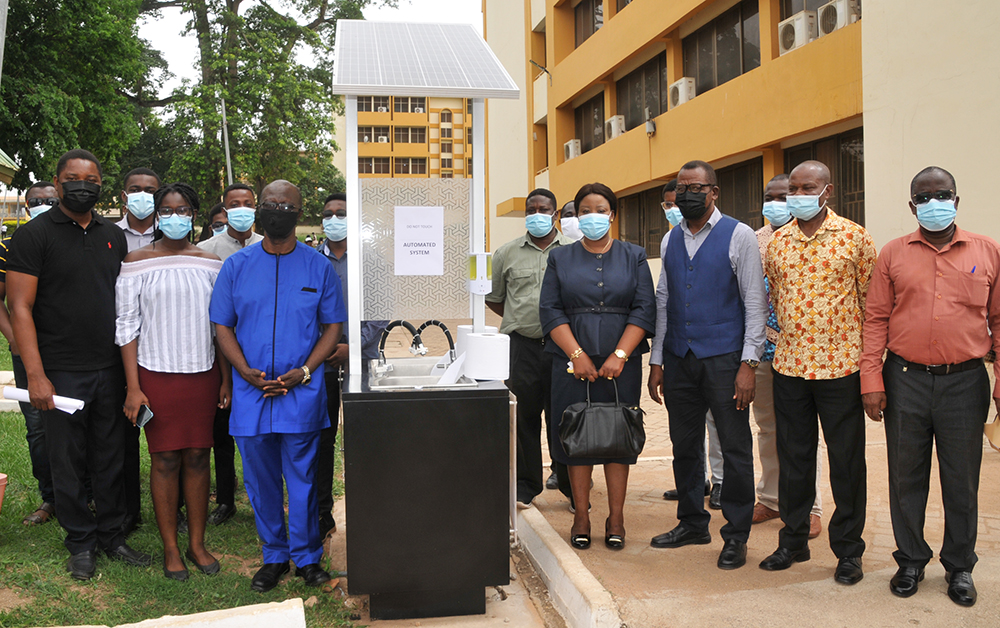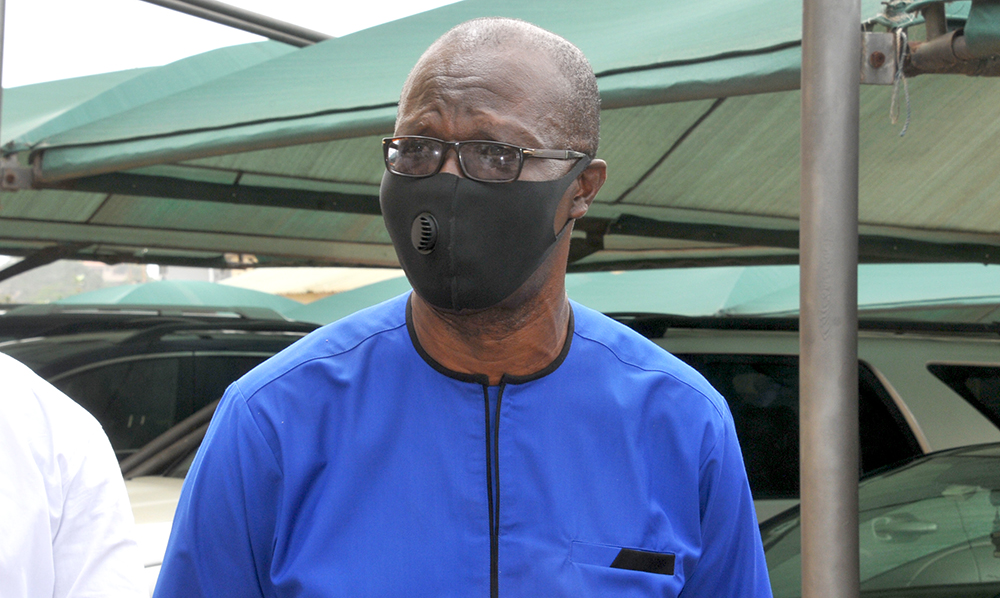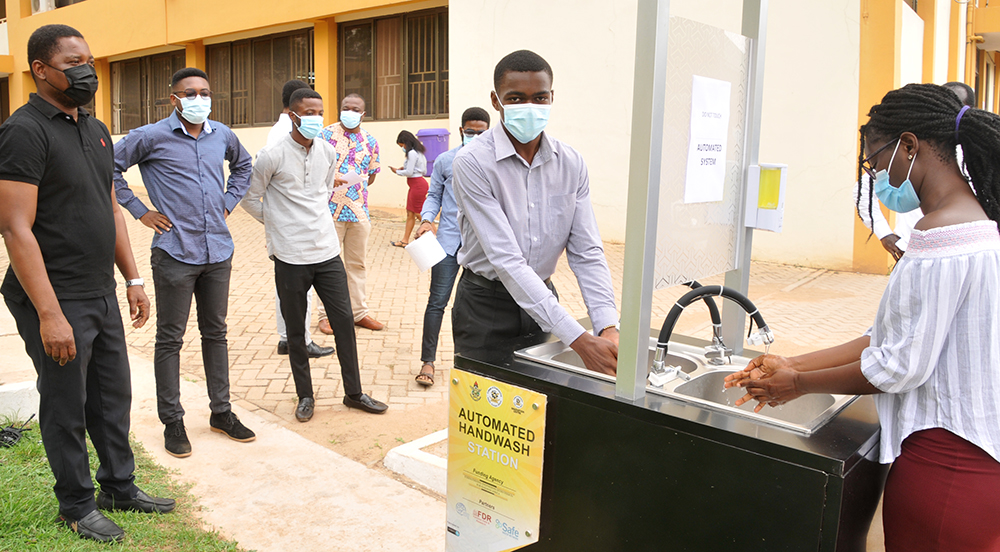KEEP NEWS
KNUST Engineering Students Build Automatic Hand Washing Station
Published: 17 Apr 2021

Students of the Innovation Centre of the College of Engineering (CoE) of the Kwame Nkrumah University of Science and Technology (KNUST), Kumasi have manufactured a solar-powered automatic hand washing station. The project, which began in 2020 with funding from Strengthening Engineering Ecosystem in Sub-Saharan Africa (SEESA), has been under the Office of the Provost.
The project team comprises Miss. Elizabeth Oduro-Koranteng (Bsc. Electrical/Electronic Engineering), Mr. Max Otuteye (Bsc. Computer Engineering), and Mr. Obeng Okofo Dartey (MPhil. Computer Engineering) under the supervision of Dr. Griffith Selorm Klogo, a member of the Steering Committee for the Innovation Centre and with technical support from the Centre’s management.

Professor Mark Adom -Asamoah, Provost, College of Engineering
Commissioning the hand washing station, Provost of the CoE, Professor Mark Adom-Asamoah said the whole concept of the Innovation Centre is to be able to come up with inventions like this that will make life easier. He revealed that in this light, the College has an Innovation Centre with about 800 student members and members are free to come up with their innovative ideas.
Professor Adom-Asamoah said that the Innovation Centre has come up with a lot of projects like making drones among others. However, with the advent of COVID-19 and its related challenges globally, a lot of activities have slowed down with academic work halting for almost 8-months. According to Professor Adom-Asamoah, the observance of the safety protocols as declared by the World Health Organisation (WHO) for safety has become paramount, hence, the students’ decision to come up with the Hand Washing Station under the guidance of Dr. Selorm Klogo, a member of faculty. He encouraged the team to come up with more projects to solve societal problems.
Briefing the gathering on the project, a Member of the Project Team, Miss. Elizabeth Oduro-Koranteng, said the touchless, solar-powered handwashing station was designed and built, to facilitate handwashing, as part of enforcing the COVID-19 protocols in KNUST. Miss Oduro-Koranteng further explained that using sensor technology, human contact that occurs when washing the hands is limited. The design of the hand washing station is to eliminate the problems associated with the traditional hand washing methods. With traditional hand washing strategies, there is more secondary contact between individuals as a result of opening and closing taps. The station is designed as two washing stations in one setup to allow for more individuals to wash their hands at a time. An installed battery also saves up energy for use during night-time. It has a reservoir that stores water and dispenses it when there is a user at the hand washing station. A drain is connected to a pipe which allows used water to flow out. She also stated that while implementing the project, artisans such as metalworkers and plumbers were contacted to aid with the fabrication and testing of the hand washing station.
The team was happy about the collaboration between students, faculty, and people in the industry, it shows that indeed such partnerships can yield fruitful results. In addition, it contributes to KNUST’s efforts in leading the country’s innovation drive.
Professor Kwaku Adjei, a Member of Faculty and a Representative of the Funding Partners, noted that the project was funded by the International Development Research Centre (IDRC) in Canada through SEESA. Funded projects should be able to be transitioned into business ideas or ventures upon completion, he added. Professor Adjei said that the project is one out of the thirteen projects being funded under the IDRC. He said aside this innovation, there are other upcoming ones, and he encouraged the students with business-oriented projects to apply for funding.

Senior Members and students present used the automated hand washing station for the first time.
